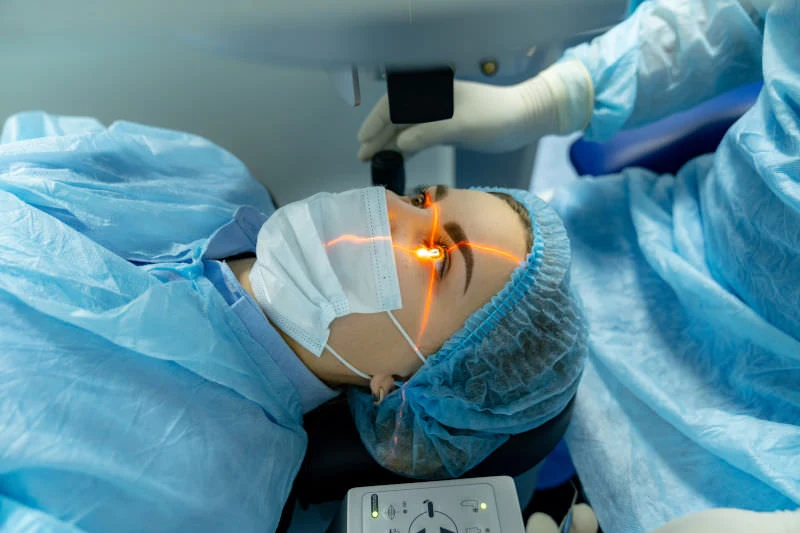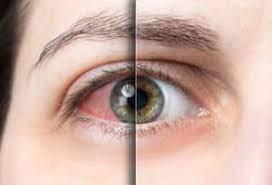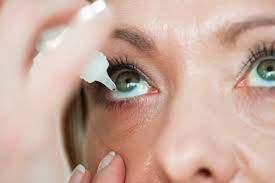If you are the one struggling with blurry vision after your recent PRK surgery and looking for ways to manage it effectively? Well, you’re not alone – countless individuals experience the same challenge during their recovery process. But worry no more! Our comprehensive guide on understanding and managing blurry vision post-PRK is here to help you regain control and achieve optimal visual outcomes. In this article, you’ll find invaluable insights into the causes of blurred vision after PRK, how to manage it, and essential tips to ensure a smooth recovery. So, let’s dive in and uncover the secrets to a successful PRK recovery journey!
Contents
What Is PRK?

PRK, or photorefractive keratectomy, is a type of laser eye surgery designed to correct common refractive errors, such as nearsightedness, farsightedness, and astigmatism. Often considered an alternative to LASIK surgery, PRK is particularly suitable for individuals with thin corneas or those who may not qualify for LASIK due to various reasons.
So, how does PRK work? The procedure involves using an excimer laser to reshape the cornea, which is the clear, dome-shaped front surface of the eye. PRK alters the corneal curvature to allow proper focusing of light onto the retina, resulting in clearer vision..
Unlike LASIK, which involves creating a corneal flap to access the underlying tissue, PRK removes the outermost layer of the cornea, called the epithelium, before reshaping the cornea. The epithelium then regenerates over the following days, creating a smoother surface and allowing for improved vision.
Although the recovery time for PRK is typically longer than that of LASIK, the procedure offers a high success rate and long-lasting results for those who are good candidates. It’s essential to consult with a qualified eye surgeon to determine the best laser eye surgery option for your unique situation.
Causes Of Blurred Vision After PRK
As you navigate the recovery process after PRK surgery, it’s essential to be aware of the various factors that can contribute to blurred vision. In this section, we’ll explore the primary causes behind this common postoperative side effect.
Epithelial Ingrowth
 During PRK surgery, the outermost layer of the cornea, called the epithelium, is removed to allow the underlying tissue to be reshaped with a laser. This layer is expected to grow back on its own within a few days to a week after surgery.
During PRK surgery, the outermost layer of the cornea, called the epithelium, is removed to allow the underlying tissue to be reshaped with a laser. This layer is expected to grow back on its own within a few days to a week after surgery.
However, in some cases, the epithelial layer may not heal properly and instead grow back underneath the corneal flap created during the surgery. This condition is known as epithelial ingrowth and can cause blurriness, haziness, or other visual disturbances.
Epithelial ingrowth can occur in anyone who has had PRK surgery, but it is more common in those who have had previous eye surgeries or have had recurrent corneal erosions. The risk may also be higher in individuals who have thin corneas or have had previous eye infections.
Symptoms of epithelial ingrowth may not appear immediately after surgery, but can develop months or even years later. The condition is typically diagnosed during routine eye exams, where the doctor may notice irregularities in the corneal surface or changes in vision.
Dry Eyes
 Undergoing laser eye surgery, including PRK, often leads to increased dry eye symptoms within the first few months following the procedure. As a PRK patient, it’s important to understand why this happens and how it can impact your vision during the recovery process.
Undergoing laser eye surgery, including PRK, often leads to increased dry eye symptoms within the first few months following the procedure. As a PRK patient, it’s important to understand why this happens and how it can impact your vision during the recovery process.
The removal and regeneration of the epithelium on the eye’s surface trigger an inflammatory response.. The body’s natural reaction to the “injury” induced by surgery is inflammation. It does, however, interfere with the eye’s capacity to maintain adequate moisture levels, resulting in dryness until the healing process is complete.
When your eyes become dry, your vision can become blurry or fluctuate. This is due to the tear film on the surface of your eyes. A healthy tear film is smooth and crystal clear, but when it evaporates too quickly, it becomes rough and irregular. This temporary blurriness is resolved when you blink and restore a smooth tear film. However, you may find yourself in a cycle where blinking briefly sharpens your vision, only for it to blur again as your eyes dry out.
By being proactive in managing your dry eye symptoms, you can ensure a more comfortable and successful recovery period.
Undercorrection or Overcorrection
Under-correction or overcorrection is another factor that can contribute to blurred vision after PRK surgery. Let’s discuss this issue in more detail to help you understand its impact on your vision and recovery.
During PRK surgery, the objective is to reshape the cornea with a laser to correct your refractive error, whether it’s myopia (nearsightedness), hyperopia (farsightedness), or astigmatism. The success of the surgery depends on the precise removal of the correct amount of corneal tissue to achieve the desired vision correction.
However, sometimes the laser may not remove the ideal amount of tissue, leading to either under-correction or overcorrection of your refractive error.
- The surgeon may undercorrect your vision during PRK by not removing enough tissue, which can result in continued blurriness post-surgery because your refractive error hasn’t been fully corrected. This outcome is more common in individuals with higher refractive errors, as they require more significant corneal adjustments during the surgery.
- Overcorrection occurs when excessive tissue removal causes blurry vision from overcorrecting the refractive error.
If undercorrection or overcorrection is the cause of your blurry vision after PRK, it’s essential to discuss this with your eye surgeon. In some cases, your vision may improve over time as your eyes continue to heal, while in other cases, additional treatment or a follow-up procedure, such as an enhancement surgery, may be necessary to achieve the desired vision correction.
Remember to maintain open communication with your eye surgeon throughout your recovery process and address any concerns you may have about your vision. By working closely with your doctor, you can ensure the best possible outcome for your PRK surgery.
How Long Does It Take for Blurry Vision to Go Away After PRK?
The duration of blurred vision after PRK (photorefractive keratectomy) can vary from person to person, but it generally improves over time as the eyes heal. Typically, patients can expect their blurry vision to gradually get better within a few days to a few weeks following the surgery.
In some cases, significant improvements in vision can be observed within the first week after PRK. Healing after PRK varies, with age, health, and refractive error severity affecting recovery time for each individual.
During the healing process, it’s crucial to follow your surgeon’s postoperative instructions, use prescribed eye drops, and protect your eyes from harmful UV rays to support optimal healing and vision improvement. Keep in mind that patience is key during the recovery process, and always consult your doctor if you experience any concerning symptoms or if your blurry vision doesn’t improve over time as expected.
Tips For Managing Blurry Vision After PRK
 In this section, we’ll share some helpful tips that can support your healing journey and help you cope with temporary blurred vision after PRK.
In this section, we’ll share some helpful tips that can support your healing journey and help you cope with temporary blurred vision after PRK.
- Follow postoperative instructions
It’s essential to follow your surgeon’s postoperative instructions to ensure proper healing and minimize the risk of complications. These guidelines may include wearing protective eyewear, avoiding rubbing your eyes, and refraining from certain activities that could strain your eyes or introduce infection. - Use prescribed eye drops
Your doctor will likely prescribe eye drops to help with healing and reduce inflammation after PRK. These drops can also help alleviate dry eye symptoms, which can contribute to blurry vision. Be sure to use them as directed and consult your doctor if you have any concerns. - Protect your eyes
Wearing sunglasses with UV protection is crucial during the healing process, as your eyes will be more sensitive to light after PRK. Sunglasses can help shield your eyes from harmful UV rays and reduce glare, which can exacerbate blurry vision.
Conclusion
Experiencing blurred vision after PRK is normal and usually temporary. Understanding the causes, such as the healing process, dry eyes, or undercorrection/overcorrection, can help alleviate concerns. By following your surgeon’s postoperative instructions, using prescribed eye drops, and protecting your eyes, you can support your healing process and vision improvement. Always consult your doctor if you experience any concerning symptoms, and remember that patience is key during the recovery process.
If you’re considering a safe and efficient solution to get rid of glasses, Lasik surgery is an excellent option. At EyeMantra, we offer the most advanced Lasik options, including PRK, Femto Lasik, SMILE surgery, Standard lasik, ICL and Contoura vision. Our expert team is here to answer any questions you may have about Lasik surgery in Delhi, Lasik surgery cost and Lasik procedure. To learn more, call us at 9711116605 or email us at [email protected]. Trust EyeMantra for a clear and bright vision of the future.


